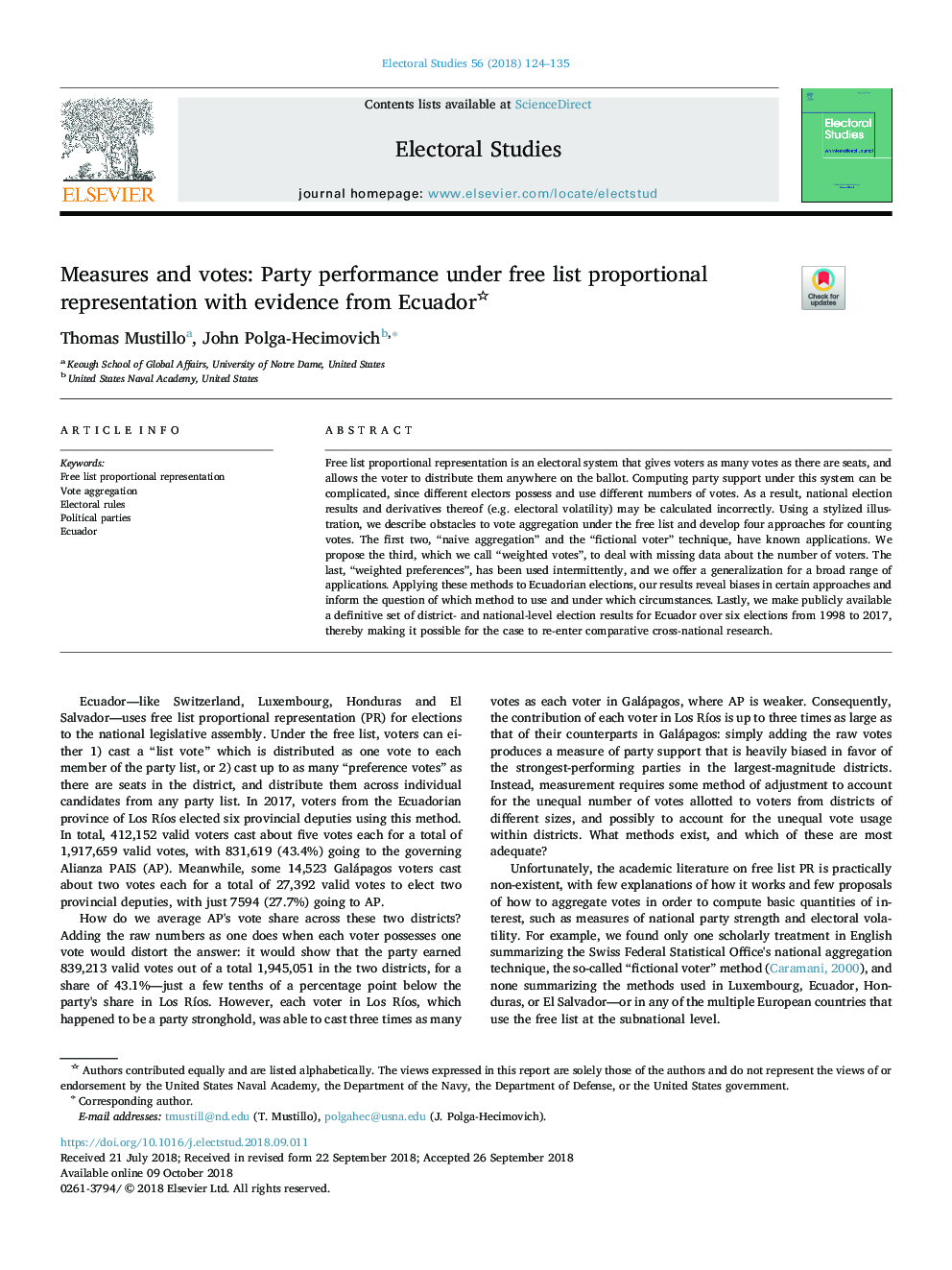| Article ID | Journal | Published Year | Pages | File Type |
|---|---|---|---|---|
| 11027542 | Electoral Studies | 2018 | 12 Pages |
Abstract
Free list proportional representation is an electoral system that gives voters as many votes as there are seats, and allows the voter to distribute them anywhere on the ballot. Computing party support under this system can be complicated, since different electors possess and use different numbers of votes. As a result, national election results and derivatives thereof (e.g. electoral volatility) may be calculated incorrectly. Using a stylized illustration, we describe obstacles to vote aggregation under the free list and develop four approaches for counting votes. The first two, “naive aggregationË® and the “fictional voterË® technique, have known applications. We propose the third, which we call “weighted votesË®, to deal with missing data about the number of voters. The last, “weighted preferencesË®, has been used intermittently, and we offer a generalization for a broad range of applications. Applying these methods to Ecuadorian elections, our results reveal biases in certain approaches and inform the question of which method to use and under which circumstances. Lastly, we make publicly available a definitive set of district- and national-level election results for Ecuador over six elections from 1998 to 2017, thereby making it possible for the case to re-enter comparative cross-national research.
Related Topics
Social Sciences and Humanities
Social Sciences
Geography, Planning and Development
Authors
Thomas Mustillo, John Polga-Hecimovich,
